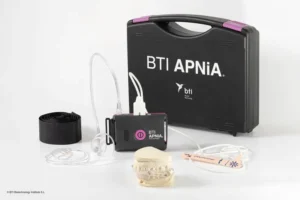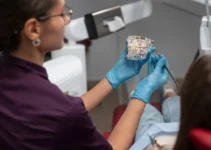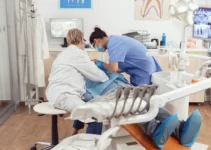For those in the UK struggling with sleep apnea, finding the right machine is critical to managing symptoms and improving sleep quality. Various types of machines such as CPAP, APAP, and BiPAP are available, each tailored to meet specific needs. By exploring the features, cost, and user feedback of these devices, individuals can make informed decisions. Moreover, understanding how these machines work to maintain open airways during sleep can also alleviate concerns about using them. It’s crucial to consult with healthcare professionals to ensure the selected machine is suitable for your condition.
Types of Sleep Apnea Machines
Sleep apnea is a serious condition that can greatly affect your quality of life. Various types of sleep apnea machines are available to assist in managing this condition. Understanding the different types can help you and your healthcare provider make the best choice for your individual needs. Each type of machine works differently and may be more suitable for certain types of sleep apnea and levels of severity.
Typically, sleep apnea machines fall into one of three categories: CPAP machines, BiPAP machines, and APAP machines. Each of these machines has its own unique features and benefits. The following sections provide an in-depth look at each type to help you understand how they work and which one might be right for you.
CPAP Machines
Continuous Positive Airway Pressure (CPAP) machines are the most common type of sleep apnea device. They deliver a constant and steady air pressure, which keeps the airways open during sleep. CPAP machines are highly effective for treating Obstructive Sleep Apnea (OSA) and have been extensively studied for their benefits.
One of the key advantages of CPAP machines is their simplicity and effectiveness. Many studies have shown that CPAP is the gold standard treatment for OSA, reducing symptoms such as daytime sleepiness and improving overall sleep quality. However, some users may find the constant pressure uncomfortable, especially when exhaling.
CPAP machines come with a variety of features, including:
- Heated humidifiers to reduce dryness
- Various mask styles to increase comfort
- Customizable pressure settings
These features help to make CPAP therapy more comfortable and effective for long-term use.
BiPAP Machines
Bi-level Positive Airway Pressure (BiPAP) machines, also known as BPAP machines, provide two levels of pressure: a higher pressure when you inhale and a lower pressure when you exhale. This dual pressure setting can be more comfortable for some people, particularly those with higher pressure needs or those who have trouble exhaling against a constant pressure.
BiPAP machines are often recommended for individuals who do not respond well to CPAP therapy. They are also beneficial for patients with more severe sleep apnea or additional respiratory conditions such as Chronic Obstructive Pulmonary Disease (COPD). Research indicates that BiPAP machines can effectively reduce apneas and improve sleep quality in these populations.
Some of the notable features of BiPAP machines include:
- Adjustable pressure settings for both inhalation and exhalation
- Backup respiratory rates for patients with central sleep apnea
- Enhanced comfort settings for improved user compliance
These features make BiPAP machines a versatile option for a broader range of sleep apnea sufferers.
APAP Machines
Automatic Positive Airway Pressure (APAP) machines dynamically adjust air pressure levels throughout the night based on the user’s needs. Unlike CPAP machines that deliver a constant pressure, APAP machines continuously monitor your breathing patterns and adjust the pressure to maintain clear airways. This flexibility can be particularly beneficial for individuals whose pressure needs vary due to changes in sleep position, weight, or stage of sleep. Studies have shown that APAP machines can be as effective as CPAP machines in treating sleep apnea, with the added benefit of potentially enhancing user comfort and compliance. By automatically adjusting the pressure, APAP machines can provide a more personalized treatment approach.
Features of APAP machines typically include:
- Real-time pressure adjustments based on breathing patterns
- Data tracking and reporting for healthcare provider review
- Comfort settings for a more natural breathing experience
These features help to ensure that APAP users receive optimal therapy tailored to their specific needs.
Understanding the differences between CPAP, BiPAP, and APAP machines can help you make an informed decision about your sleep apnea treatment. Each type of machine offers unique benefits and may be more suitable for certain conditions and personal preferences. For more in-depth information on sleep apnea treatments and devices, be sure to explore our other articles.
Benefits of Using Sleep Apnea Machines
Sleep apnea is a serious condition that can significantly affect one’s quality of life. One of the most effective treatments for this condition is the use of sleep apnea machines, such as Continuous Positive Airway Pressure (CPAP) devices. These machines provide numerous benefits for those suffering from sleep apnea.
In this section, we will explore the various advantages of using sleep apnea machines, including improved sleep quality, enhanced daytime alertness, and long-term health benefits. Understanding these benefits can help patients make informed decisions about their treatment options.
Improved Sleep Quality
One of the most immediate benefits of using a sleep apnea machine is the significant improvement in sleep quality many patients experience. Sleep apnea can cause frequent interruptions in sleep, leading to fragmented and non-restorative rest. With the help of a CPAP machine, airway obstructions are prevented, allowing for a continuous and undisrupted sleep throughout the night.
This uninterrupted sleep is crucial for achieving the deep stages of sleep, such as REM sleep, which are essential for physical and mental restoration. A study published in the American Journal of Respiratory and Critical Care Medicine found that individuals using CPAP therapy experienced a marked increase in sleep efficiency and felt more refreshed upon waking.
Enhanced Daytime Alertness
Improved sleep quality directly contributes to increased daytime alertness. People with untreated sleep apnea often feel excessively sleepy during the day, which can affect their ability to concentrate, work efficiently, and perform daily tasks safely. Using a sleep apnea machine can help mitigate these issues, resulting in better overall functioning during the day.
Studies have shown that CPAP therapy can significantly reduce daytime sleepiness. For instance, research published in the journal Chest found that participants who adhered to CPAP therapy reported reduced levels of daytime fatigue and improved cognitive function.
This improvement in alertness is particularly important for individuals in professions that require high levels of concentration and focus, such as drivers, machine operators, and healthcare professionals. Enhanced alertness not only improves productivity but also contributes to increased safety in various settings.
Long-term Health Benefits
Beyond the immediate advantages of better sleep and daytime alertness, using sleep apnea machines can have significant long-term health benefits. Sleep apnea is associated with a range of serious health issues, including cardiovascular diseases, hypertension, and diabetes. By effectively managing sleep apnea, patients can reduce their risk of developing these conditions.
For instance, consistent use of CPAP therapy has been linked to a reduction in blood pressure levels, which is particularly beneficial for those with hypertension. The New England Journal of Medicine published a study showing that long-term CPAP users had fewer cardiovascular complications compared to those who did not use the therapy. In addition to cardiovascular health, improved sleep from using CPAP machines can bolster the immune system, enhance mood, and even aid in weight management. Given these extensive benefits, the importance of treating sleep apnea with appropriate interventions cannot be overstated.
In conclusion, the advantages of using sleep apnea machines are numerous and significant, including improved sleep quality, enhanced daytime alertness, and long-term health benefits. For more detailed information on related topics, consider reading our other articles that delve deeper into the impacts of sleep apnea and effective treatment options.
Choosing the Right Machine for You
When it comes to selecting the appropriate machinery for dental implantology and bone regeneration, numerous factors must be taken into account. The type of machine you choose can significantly influence the success of the treatment and the overall experience for both the clinician and the patient. One of the first considerations should be the specific needs of your practice. For instance, if you frequently perform complex bone grafting procedures, you may require more advanced equipment with higher precision capabilities.
Another pivotal factor to assess is the technology integrated into the machine. Many modern dental machines come equipped with advanced features such as 3D imaging, which enhances accuracy in diagnosis and treatment planning. Investing in a machine that incorporates cutting-edge technology can drastically improve patient outcomes and streamline the treatment process. Moreover, it is crucial to consider the machine’s ease of use and ergonomic design, as these aspects can contribute to decreasing operator fatigue and increasing procedural efficiency.
Lastly, the cost and maintenance of the machine should be evaluated. High-quality dental machinery is undoubtedly an investment, but it is crucial to balance the initial cost against long-term benefits. Look for machines that offer excellent warranty coverage and readily available customer support. Additionally, regular maintenance is essential to ensure the machine’s longevity and optimal performance. In conclusion, selecting the right machine involves a comprehensive evaluation of your practice’s needs, budget, and the technological advancements that can enhance patient care.
Common Questions About Sleep Apnea Machines in the UK
If you’re considering a sleep apnea machine in the UK, you might have some questions about how they work and the benefits they offer. Here is a popular concern addressed for better understanding.
What types of sleep apnea machines are available in the UK?
In the UK, the most common types of sleep apnea machines include CPAP (Continuous Positive Airway Pressure), APAP (Automatic Positive Airway Pressure), and BiPAP (Bilevel Positive Airway Pressure) machines. Each type has different features tailored to varying degrees of sleep apnea severity and user comfort preferences.

My name is Salman Kapa, a 73-year-old expert in bone regeneration and dental implantology. With decades of experience in the field, I am dedicated to advancing our understanding of oral health and hygiene. Through my research and writing, I aim to contribute to the development of innovative solutions in dental care.




